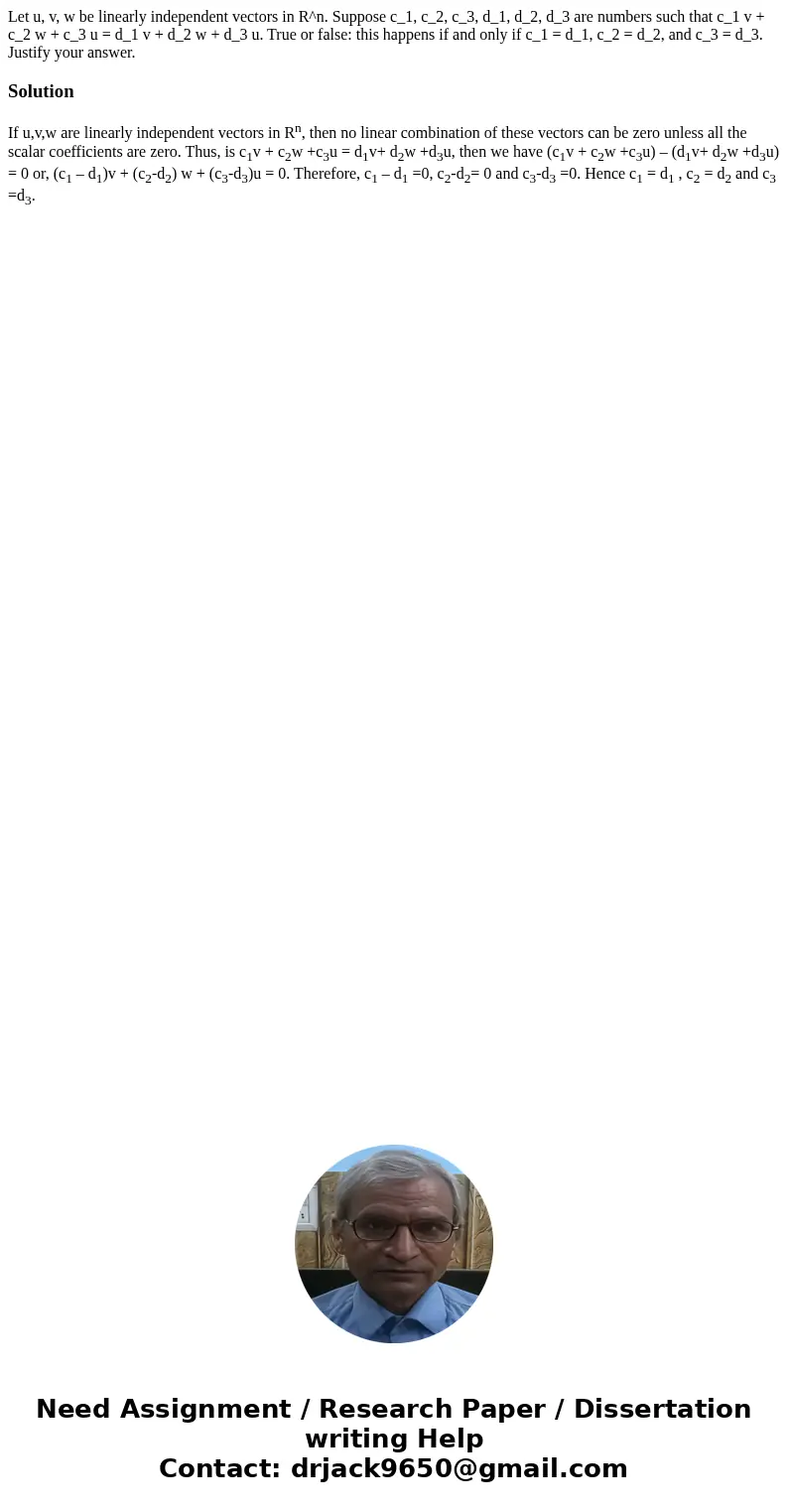Let u v w be linearly independent vectors in Rn Suppose c1 c
Let u, v, w be linearly independent vectors in R^n. Suppose c_1, c_2, c_3, d_1, d_2, d_3 are numbers such that c_1 v + c_2 w + c_3 u = d_1 v + d_2 w + d_3 u. True or false: this happens if and only if c_1 = d_1, c_2 = d_2, and c_3 = d_3. Justify your answer.
Solution
If u,v,w are linearly independent vectors in Rn, then no linear combination of these vectors can be zero unless all the scalar coefficients are zero. Thus, is c1v + c2w +c3u = d1v+ d2w +d3u, then we have (c1v + c2w +c3u) – (d1v+ d2w +d3u) = 0 or, (c1 – d1)v + (c2-d2) w + (c3-d3)u = 0. Therefore, c1 – d1 =0, c2-d2= 0 and c3-d3 =0. Hence c1 = d1 , c2 = d2 and c3 =d3.

 Homework Sourse
Homework Sourse